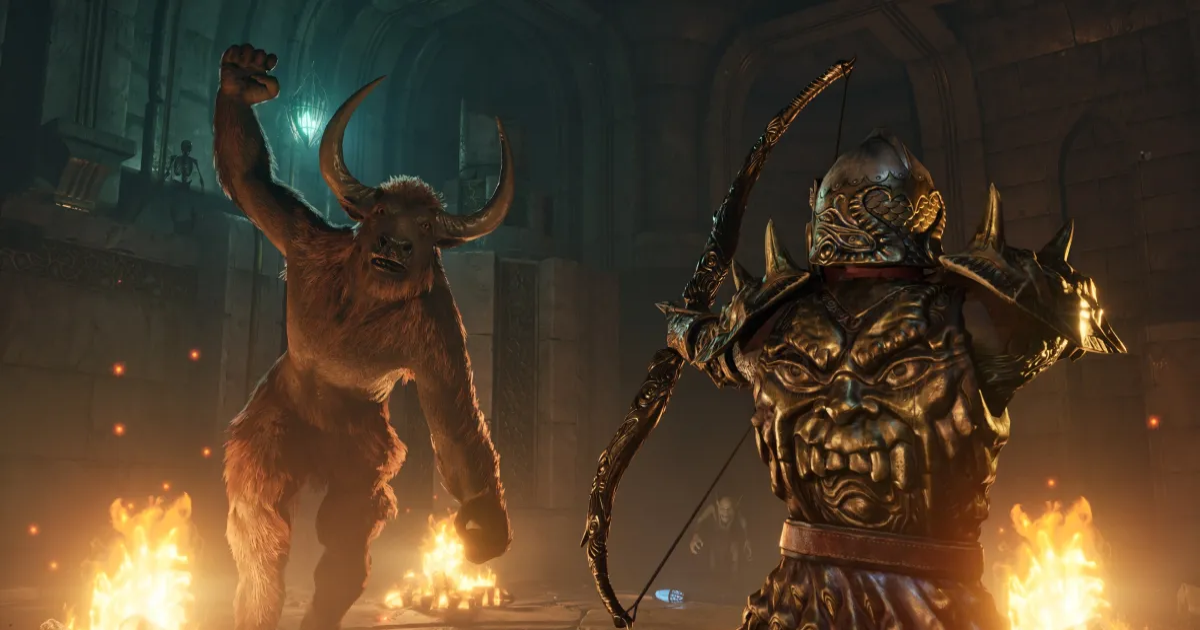It was really great seeing all the excitement from fans when Oblivion shadow dropped earlier this week. For a lot of people, the fourth installment in the Elder Scrolls series is the game, the experience that either was the impetus for their career in video games, instilled in them an everlasting love for the format, or both.
But I never played Oblivion when I was younger. It came out in 2006, when I was a freshman in college and firmly within the iron grip of the PS2. (While you partied on Cyrodiil, I studied the keyblade.) I was first introduced to the Elder Scrolls series via Skyrim, a game that I simply could not get into despite my best efforts and having a partner who loved the game who I wanted to become closer to. When I started Oblivion for the first time I was so hopeful that it would capture me in a way its successor did not. It did — but not for the reasons I expected.
My first surprise came within the game’s opening minutes when I met Emperor Uriel Septim VII. I was shocked. This was the Patrick Stewart, Captain Picard himself, best friend of Gandalf the Grey. I was surprised yet again when I met Brother Martin; I’d know Sean Bean’s voice anywhere. (And because it’s him, I think I have a major clue as to his inevitable fate.)
I tend to think of stunt casting in video games as a much more recent thing. Video games have always been popular and celebrities have always engaged with the medium. (See also Clair Obscur Expedition 33 which came out this week boasting the voice talents of fellow Lord of the Rings alum Andy Serkis and Daredevil himself, Charlie Cox.) But having Patrick Stewart show up in your game in 2006 is another level. I wanted to know why and how Bethesda managed this which led me to the Making of Oblivion documentary. I love hearing how moments from a developer’s personal history influence a game and it was really cool watching Todd Howard gush over Terrance Stamp and seeing the developers freak out hearing Patrick Stewart voice Oblivion’s opening lines for the first time. It was a special kind of forensic enjoyment I would not have gotten just playing the game itself.
When it comes to the game, I like the flexibility of the class system. I prefer ranged combat and I appreciated that Oblivion didn’t shunt me into either a pure archer build or a pure magic build the way other RPGs do (like Dragon Age) and instead gave me the best of both worlds in the monk. I tend to struggle with the “you can be anything” type of games because I need direction. I can’t have too many options because I’ll wind up not picking any of them. With Oblivion, I could make a class that feels good to play and is suited to my particular tastes without getting overwhelmed. I can sling my spells and arrows safely while still being able to mess shit up in melee range because of my Redguard’s affinity for all kinds of weapons.
As for the actual gameplay of Oblivion itself, the experience is neither terrible nor great. I know it’s one of those games where its bugginess is part of its charm but I’m not getting any of the funny bugs, just the frustrating ones. I’m playing on Game Pass and during every one of my sessions, the game has crashed. Unreal Engine 5 makes the world look nice but it feels very generic. I understand that seeing Cyrodiil in 2006 was probably groundbreaking and seeing it updated for 2025 inspires a lot of warm, nostalgic feelings. But while I’ve seen this kind of world before in every similar game since, there’s something interesting in knowing Oblivion is one of the places where that all came from.
1/3Almost everyone in Oblivion has the same too small, too blue eyes. Its frightening.
Image: Bethesda
Speaking of updated graphics, the NPC faces are truly terrifying. They do look better with all the fancy graphics and textures but all the updates cast them firmly within the unsettling uncanny valley with eyes too small and too icy blue on faces that are way too big. But as I understand it, that’s part of Oblivion’s appeal.
Even though playing Oblivion is not particularly fun for me, what is really fun and fascinating is seeing all the little bits and pieces that I recognize from other games or from games media in general in their proper context. It’s like The Simpsons, another thing I did not grow up with that seemingly everyone else did. I’ve seen and used the meme of Homer disappearing into the bushes hundreds of times but it was only this year that I ever saw the episode in which that happened.
It’s like cracking open an RPG time capsule. Even for all its unsavory bits, being able to make the connection between Oblivion and all the other games it has inspired that I actually do enjoy is really neat. I even think that with more time I could come to enjoy the game as I unravel the Cyrodiilian line of succession and shut all the Oblivion gates. But even if that doesn’t happen, I’ll still enjoy the ride.
See More:
